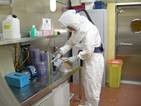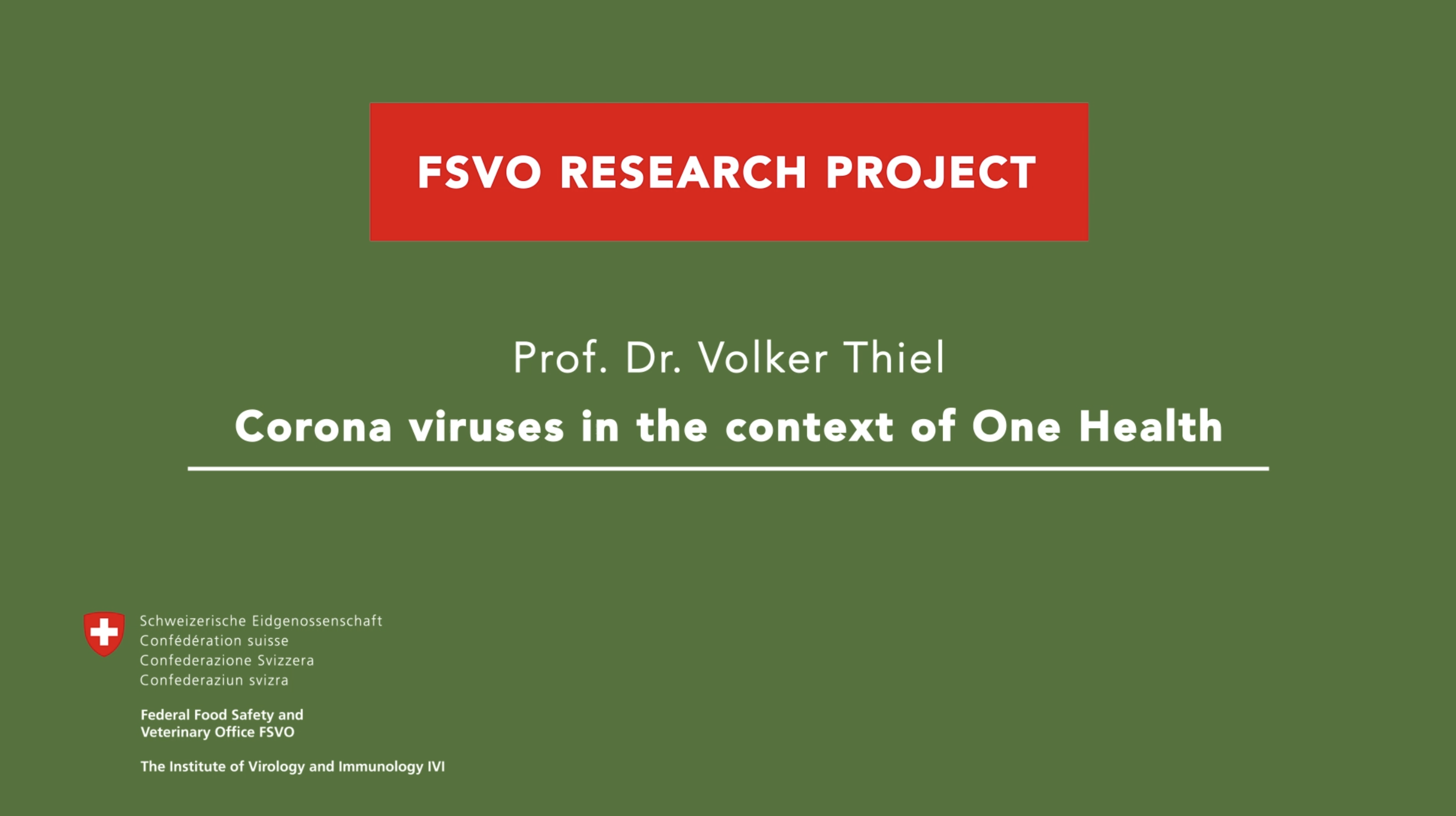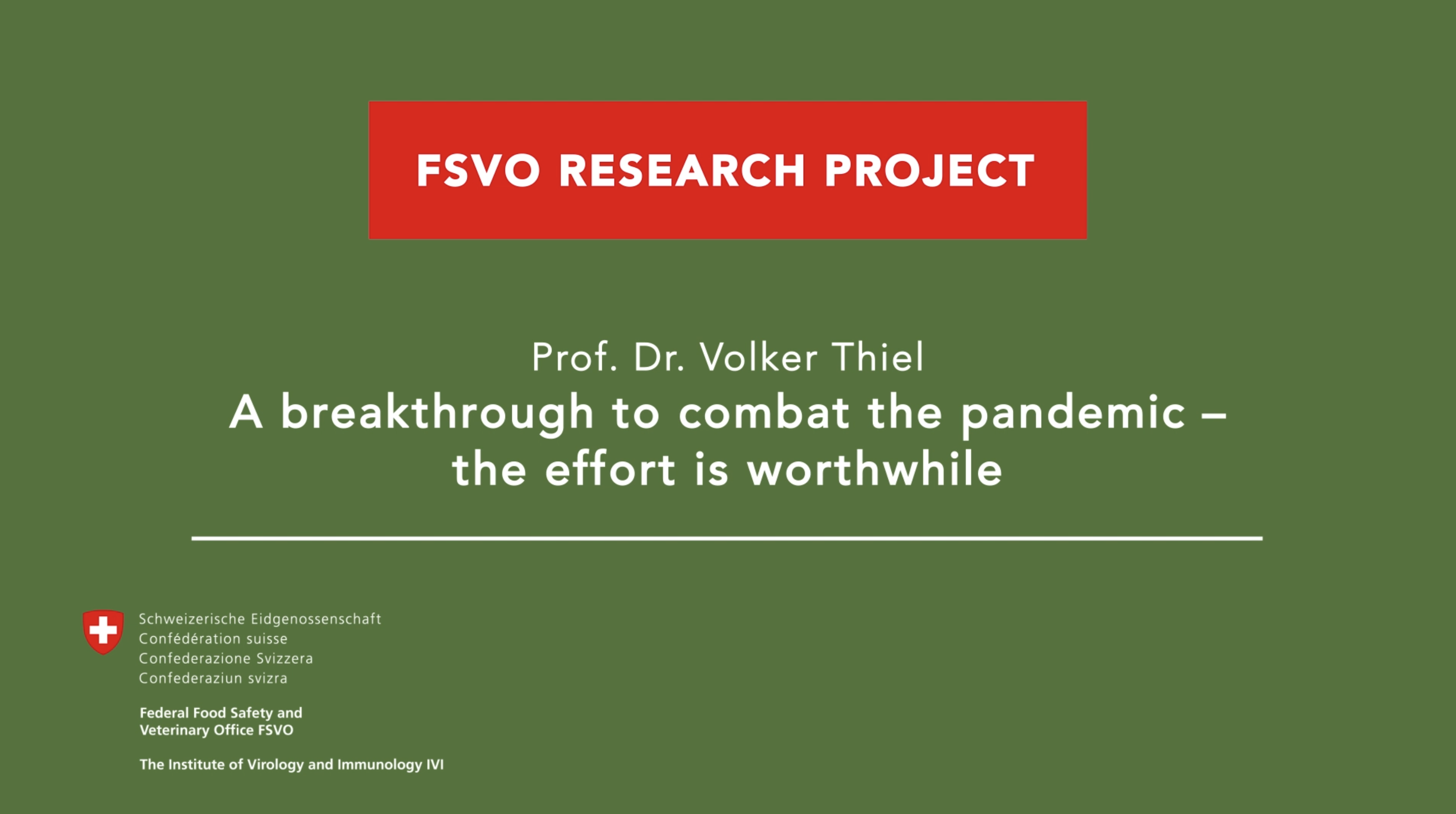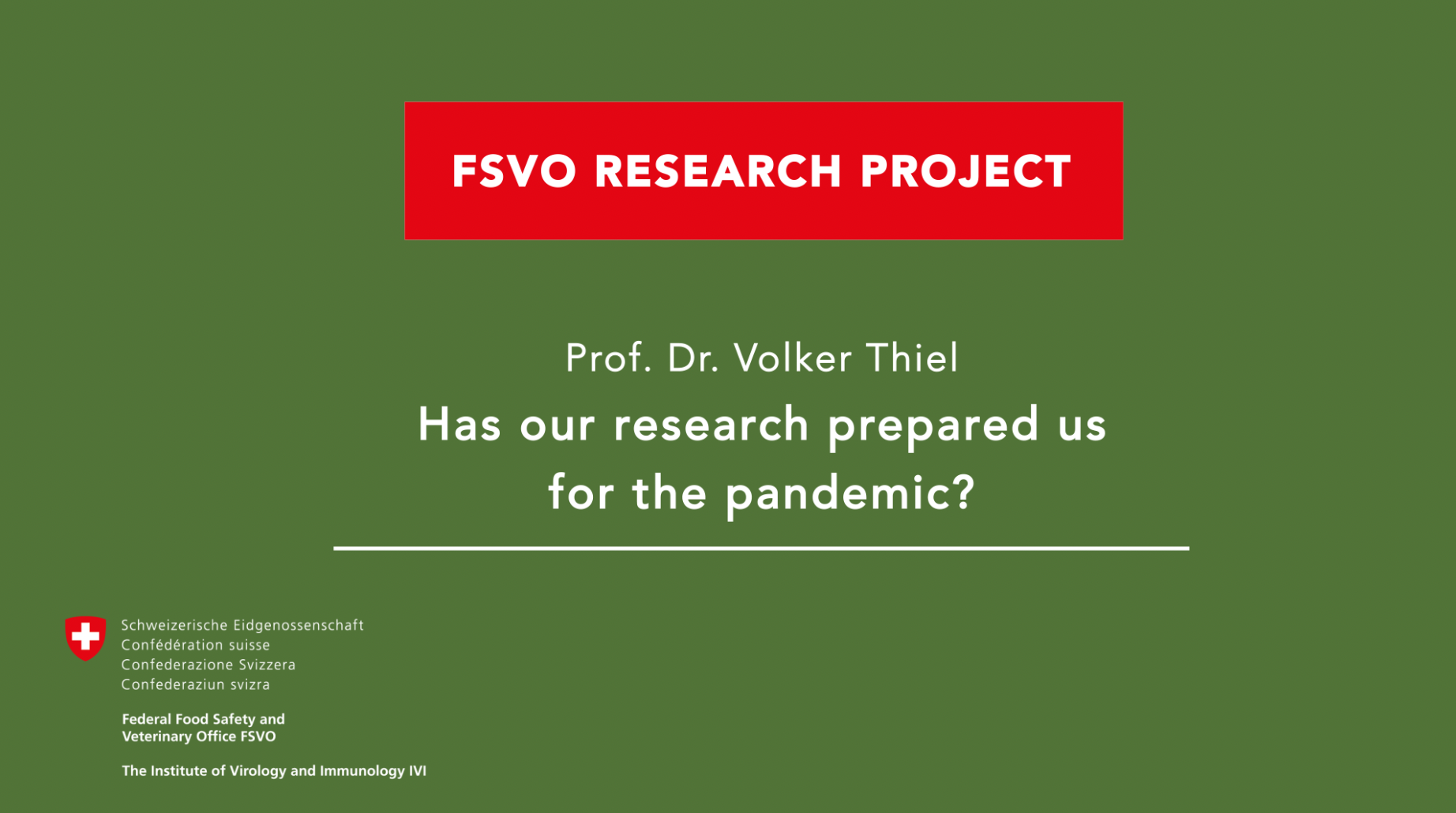A research programme supported by the FSVO on preventative measures against outbreaks of coronaviruses in the veterinary field delivered significant findings on viruses that jump from animals to humans. Thanks to these findings the emerging zoonotic viruses, such as SARS-Coronavirus-2, can be better investigated.

Coronaviruses are known as important pathogens in the veterinary field. They can infect mammals and birds. A number of coronaviruses are triggers of critical diseases in livestock and pets.
Volker Thiel, researcher at the Institute of Virology and Immunology (IVI) and professor at the University of Bern has been carrying out research into coronaviruses in the veterinary field for several years. In the interview he explains
- which animals can contract the SARS-coronavirus-2 and fall ill with COVID,
- which findings help to protect livestock and pets against coronaviruses,
- and which animals can transmit the virus to humans.
The family of coronaviruses also includes the porcine epizootic diarrhoea virus (PEDV). It is responsible for serious outbreaks of disease in China since 2010 and in USA since 2013.
The FSVO and the Coronaviruses
In a project supported by the FSVO from August 2015 to July 2018, preventative measures were drawn up for the case in which a highly virulent PEDV strain were introduced into Europe and thus into Switzerland.
The project involved the production of a “molecular clone” of the PEDV strain. Thanks to this clone the PEDV genome can be modified such that it no longer triggers disease and can be tested as a possible vaccine. Based on these findings a similar strategy can be applied to SARS-Cov-2.
Coronavirus expertise at the Institute of Virology and Immunology (IVI)
As the news of a new SARS-Coronavirus spread round the world in January 2020 the IVI, part of FSVO, was well prepared. The IVI, in its research on the fundamental mechanisms of the replication of coronaviruses in animals and humans, had carried out work on coronaviruses for a number of years.
The research always focussed on the question of how the findings can be utilised to prevent the replication and spreading of coronaviruses, and how coronaviruses could be specifically weakened and converted into a vaccine.
Also, in the case of SARS-CoV-2, this involves forming a “molecular clone”. The scientists in IVI succeeded in record time, as soon as February 2020, to generate such a clone (Publication in the journal Nature, 4. May 2020).
Volker Thiel explains in the interview
- the role of his research when COVID-19 appeared in China at the end of 2019, and how he and his team of researchers have collaborated nationally and internationally with other experts,
- to what extent the findings from his research on the PED virus benefit the fight against SARS-COV-2,
- and which role is played by the molecular clones of the PED-strain in the development of vaccines intended to be inoculated in the fight against COVID-19.
Harmless Coronaviruses as possible vaccines
As a result of this success, the Swiss National Science Foundation (SNF) instigated a research project for the development of weakened SARS-CoV-2 variants that could be suitable live vaccines. Besides the IVI, two additional research groups from Bern and Geneva, as well as two research groups from Berlin and Rheims, were involved in this project.
The PEDV project is entering the second phase. In collaboration with an industrial partner the intention is to produce and test a PEDV vaccine. In addition, work has begun on the development of a live vaccine for Covid-19. The molecular SARS-CoV-2 clone has been made available to many research laboratories throughout the world. These laboratories are pursuing similar strategies for the production of live vaccines or use the clone to identify antiviral agents for treating COVID-19.
In the interview Volker Thiel explains the difference between the live vaccines intended to be developed, based on the findings of his research, and the vaccines that are currently inoculated in the fight against Covid 19.
More informations
Last modification 14.06.2022







